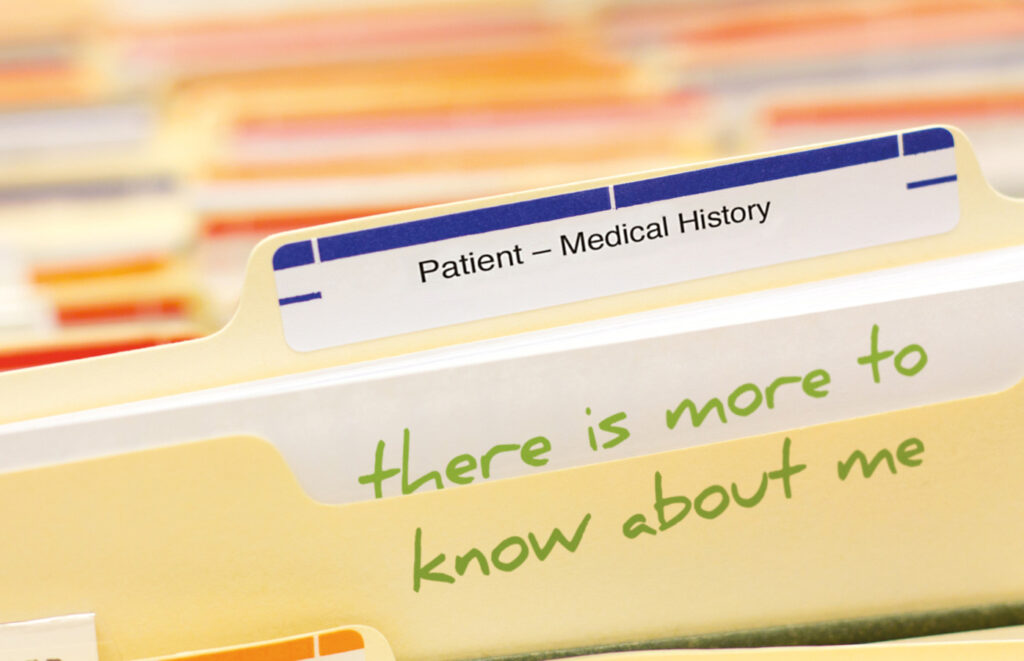My story (anonymous)
“The way that people treat you if you have the EUPD/PD label is retraumatising.”
Content warning: sexual violence

Author wishes to remain anonymous
I have been diagnosed with depression, postnatal depression, psychosis and bipolar at various times. I began to suspect that a diagnosis of EUPD/PD (Emotionally Unstable Personality Disorder) had been discussed without me but no one would talk to me about it when I asked. I saw it one day when the GP had my notes up – it came up on the screen like a warning as though I was dangerous and mad.
It is a label which invites disrespect and cruelty. I am articulate and creative and don’t fit a stereotype of mental health patient, but it takes a confident professional to be truly person-centred and reflective, and most of them do not know how to engage with people who don’t fit a type. I have also been given the wrong treatments, which have prolonged and worsened problems.
Laughed at openly in front of staff and patients.
The situation was made worse when I was invited to join a lived experience project. I agreed to speak to health professionals about what it is like to be an inpatient. When some of these people came across me after that, they ridiculed me. I have been laughed at openly by mental health nurses in front of other staff and patients. I was recorded as disengaging with the Crisis team but this was because of how unhelpful they were.
For the last 8 years, I have consistently taken several high dose bipolar medications and have stabilised on these. I become ill quickly if I miss them. My GP told me that this shows I have bipolar and not PD, though they did not apologise for the haphazard response I had over the years.
The way that people treat you if you have the EUPD/PD label is retraumatising. When I disclosed traumatic events, it was written in my notes that I was probably making it up, so I responded by burying it and have never talked about the sexual abuse I experienced as a young person.
Buried abuse results in physical and mental health problems in itself. I would never join a lived experience group again because of the awful impact it had on my treatment.
Speak your truth: your own experiences can help create change
If you want to share your experiences around this diagnosis you can take part in Platfform’s Truth Project.
Platfform are campaigning for a review of the use of the diagnosis of PD. Add your voice to our call for change by sharing your story. We will share these with Welsh Government and use them to strengthen our campaign.
For more information, and to access the survey, click here.
If you are in a mental health crisis, please read this paragraph
If you have been affected by anything in this story and would like to talk to someone you can call Samaritans on 116 123. You can also call the national mental health support line for advice on 111 (press 2).


